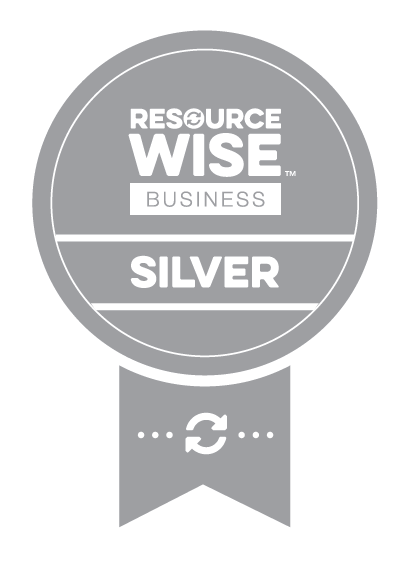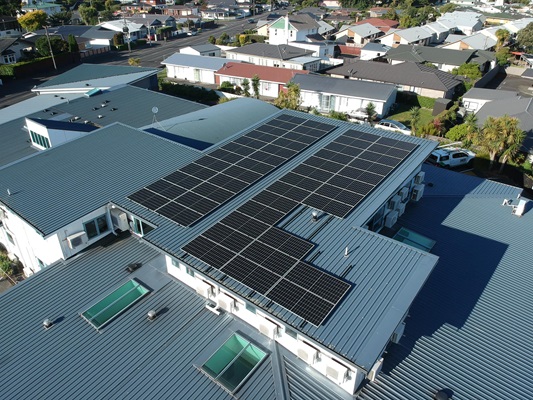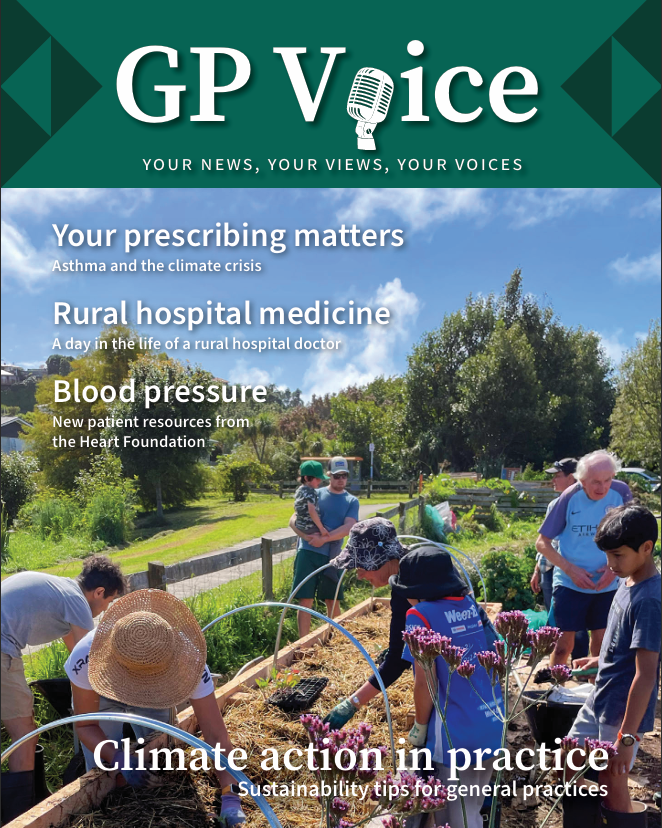For emergencies please dial 111
Sustainability
At Carefirst we know that caring for people and the environment go hand in hand; the health of our environment has significant impacts on the wellbeing of our population, or as the whakataukī (Māori proverb) goes, ‘ka ora te whenua, ka ora te tangata – when the land is well, the people will be well’.
That’s why it’s imperative that we are doing what we can to ensure it is protected, both for our community and for future generations. This is driving force behind our decision to write our commitment to environmental sustainability into our values and strategic goals.
They guide our decision making at every level and have enabled us to prioritise the implementation of meaningful, measurable actions within our healthcare services.
How are we reducing carbon emissions?
Toitū certification

In 2023, we joined the Toitū carbonreduce certification programme; this was a vital step in cementing our commitment to progressively reducing our total annual operational emissions.
We achieved an exciting milestone in June 2024, becoming a Toitū carbonreduce certified organisation, in line with ISO 14064-1:2018 and Toitū requirements.
This means we are positively contributing to the sustainability of our community’s future through measuring and active management of our carbon footprint. Toitū is to care for the life of this place, our people and our future, so we are incredibly proud to have achieved this internationally-recognised certification and the work our staff have done to get to this point.
Certification provides us not only with a benchmark for our sustainability goals, but also a solid foundation for informed decision-making, so we can confidently use international best practices to further minimise the impacts of our operations on the environment.
Gaining this standard is also good news for patients and staff, as it provides assurance that we are providing sustainability-conscious healthcare with a positive vision for the future.
Waste reduction

When we began our sustainability journey, we found that by far, our biggest greenhouse gas emissions came from waste sent to landfill.
So we’re proud to say that with expert guidance from New Plymouth District Council’s Resource Wise Business (RWB) Programme and ongoing commitment from our staff, as of the end of 2022 we reached the programme’s ‘Silver status’, diverting 55% of our annual waste from Taranaki landfill. That’s just over 2000 kgs!
This is a 21% increase on the amount of waste diverted in 2021 and we’re working hard to increase that percentage again, all while maintaining the expert care you can expect from your healthcare team.
Check out the video below to hear about our waste management journey first-hand from Katherine, a registered nurse and waste management champion at Carefirst Westown.
Producing green energy

We’re proud to have installed 100 solar panels on the roof of our Westown clinic (pictured right). The panels reduce strain on grid power by producing a green energy source for our building.
We would like to acknowledge Pinnacle for their support of our sustainability journey through their Facility Development Fund, which contributed to the cost of the panels.
This was a significant milestone in our sustainability journey, and we are working towards installation of solar panel systems at our other clinics – watch this space!
Communal gardening & sustainable prescribing
Community gardens promote an environmentally and socially just food system that benefits all. They can improve taha tinana/physical wellbeing, taha hinengaro/mental wellbeing, taha whānau/family, community, and social wellbeing, taha wairua/spiritual wellbeing, and the whenua/land..
That is why we’ve planted a selection of citrus trees at Carefirst Westown and our Skin Clinic Taranaki premises on Powderham Street. We’re also a proud supporter of the Marfell Māra (community garden) – check out a video here from one of many working bees.
Sustainable prescribing practices are another way we are reducing our carbon footprint. It’s estimated up to 60 percent of healthcare’s carbon emission is in the medicines we prescribe, and a big-ticket item in the medications we prescribe is changing our asthmatic patients from pressurised metered-dose inhalers (pMDIs) to dry-powder inhalers (DPIs). The gas in a typical pMDI causes as much global warming as a car driven 290 kms.
By making this switch, we are both reducing carbon footprint while simultaneously promoting optimal patient care.
We can also prescribe social interventions to promote holistic wellbeing and support for environmental concerns. An innovative example of social prescribing in Taranaki is Kōia – mana kai, mana tangata (Gardening for wellbeing).
This initiative encourages participation in community gardening with the support of health intervention practitioners and Sport Taranaki’s Green Prescription team. Participation boosts physical, spiritual, emotional and social wellbeing, by embedding positive behaviour change.
Climate action in practice – Carefirst features in GP Voice!

Word about our team’s passion for sustainable healthcare practices has also gotten out in the nation’s GP community, with the Royal New Zealand College of General Practitioners asking our very own Dr Kiyomi Kitagawa to write about our sustainability journey in the College’s magazine, GP Voice.
Click the link below and head to page 12 to read her valuable insights (and make sure you check out the cover image – that’s us too!)
Make an appointment
Learn more about our different appointment types and how to make them.
We're here to help
We care about your health and wellbeing, our goal is to provide excellent primary care services to our patients.

Carefirst Westown
99 Tukapa Street, Westown, New Plymouth PO Box 5002 Westown, 4343 (06) 753 9505 email@carefirst.co.nzCarefirst Merrilands
Merrilands Shopping Centre, Mangorei Road, New Plymouth 4312 PO Box 18042 Merrilands, 4360 (06) 758 8773 email@merrilandsmedical.co.nzCarefirst Moturoa
486 Saint Aubyn Street, Moturoa, New Plymouth 4310 PO Box 6052 Moturoa, 4344 (06) 751 0390 admin@moturoamedical.co.nzCarefirst Bell Block
69 Corbett Road, Bell Block, New Plymouth PO Box 9095 Bell Block, 4351 06 968 1440 admin@bellblockmedical.co.nzCopyright © Carefirst 2025. Website by Cheers Digital.
Urgent care
The Carefirst Group URGENT CARE CLINIC is located at our Westown practice, 99 Tukapa street. It is currently open from 8:30am to 5pm, Monday to Friday. All patients are welcome to access care in our Urgent Care Clinic, even if you are not enrolled with us. You don't need an appointment, just pop in to reception if you need urgent medical care or are injured. If you need emergency care please dial 111 for an ambulanceChoose your patient portal
Secure, confidential, fast and easy way to book appointments. Not registered for the online portals? Find out more
Enrolments limited
Our enrolment capacity is currently limited, please phone or email one of our clinics to discuss availability. Thanks for your understanding.




